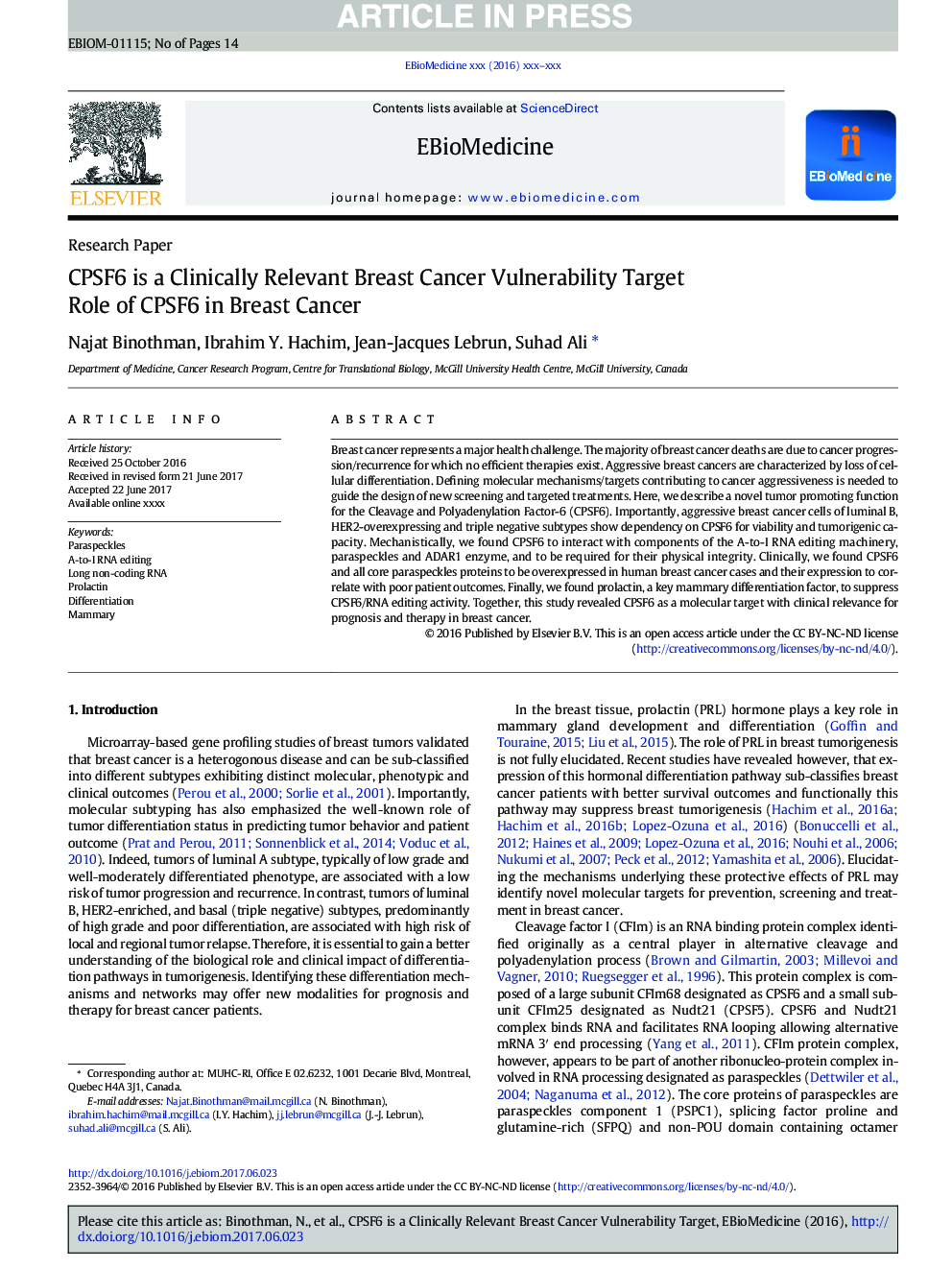| Article ID | Journal | Published Year | Pages | File Type |
|---|---|---|---|---|
| 8438190 | EBioMedicine | 2017 | 14 Pages |
Abstract
Breast cancer represents a major health challenge. The majority of breast cancer deaths are due to cancer progression/recurrence for which no efficient therapies exist. Aggressive breast cancers are characterized by loss of cellular differentiation. Defining molecular mechanisms/targets contributing to cancer aggressiveness is needed to guide the design of new screening and targeted treatments. Here, we describe a novel tumor promoting function for the Cleavage and Polyadenylation Factor-6 (CPSF6). Importantly, aggressive breast cancer cells of luminal B, HER2-overexpressing and triple negative subtypes show dependency on CPSF6 for viability and tumorigenic capacity. Mechanistically, we found CPSF6 to interact with components of the A-to-I RNA editing machinery, paraspeckles and ADAR1 enzyme, and to be required for their physical integrity. Clinically, we found CPSF6 and all core paraspeckles proteins to be overexpressed in human breast cancer cases and their expression to correlate with poor patient outcomes. Finally, we found prolactin, a key mammary differentiation factor, to suppress CPSF6/RNA editing activity. Together, this study revealed CPSF6 as a molecular target with clinical relevance for prognosis and therapy in breast cancer.
Related Topics
Life Sciences
Biochemistry, Genetics and Molecular Biology
Cancer Research
Authors
Najat Binothman, Ibrahim Y. Hachim, Jean-Jacques Lebrun, Suhad Ali,
